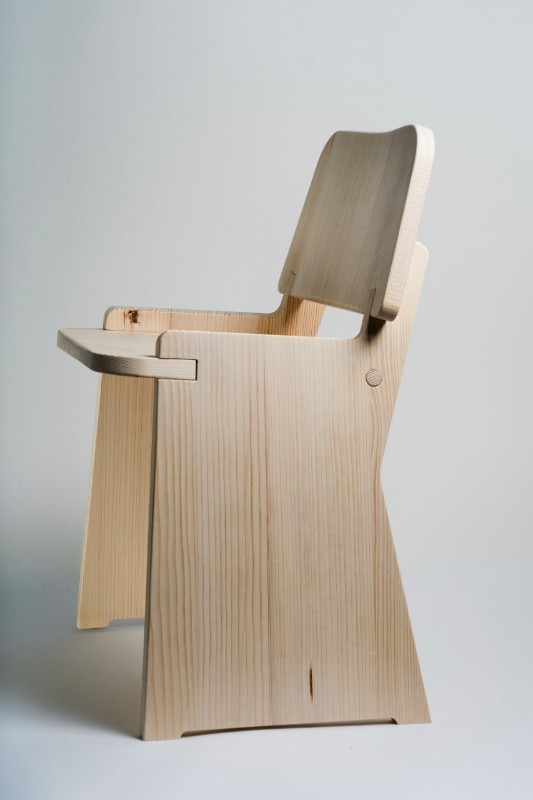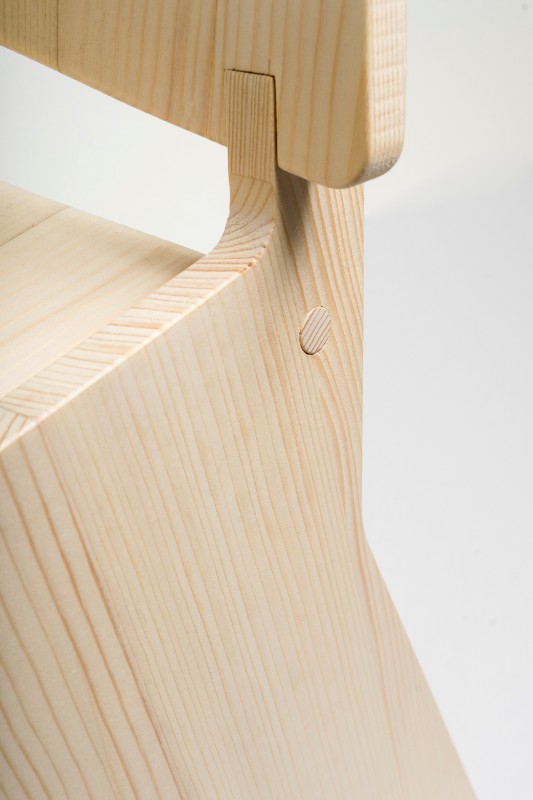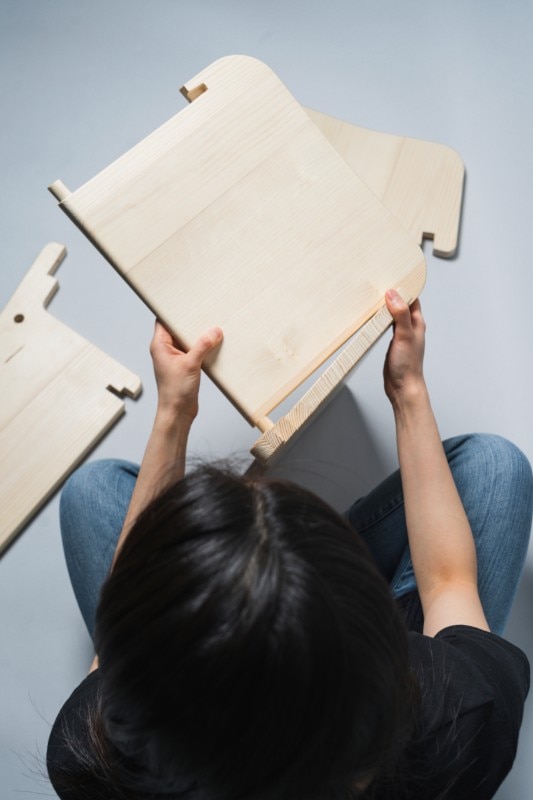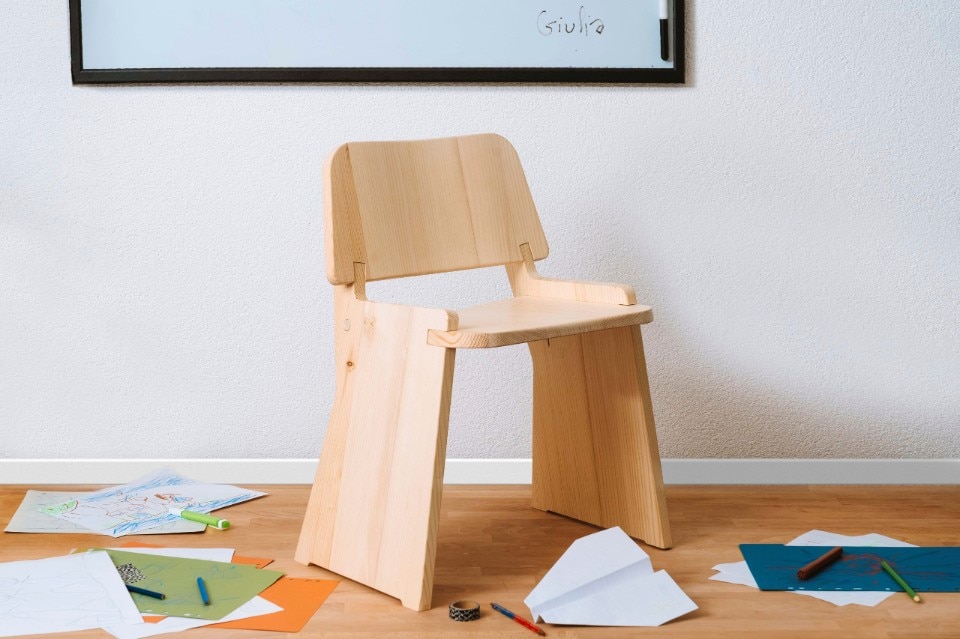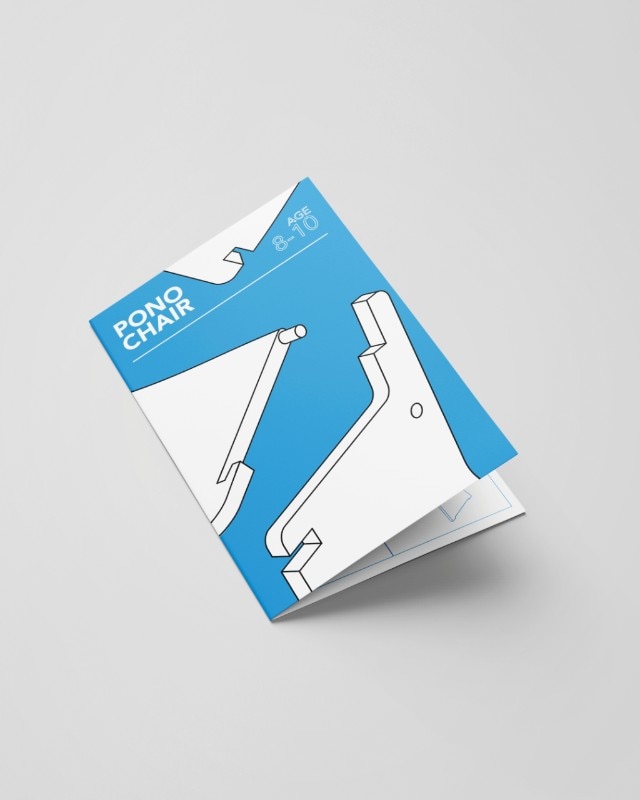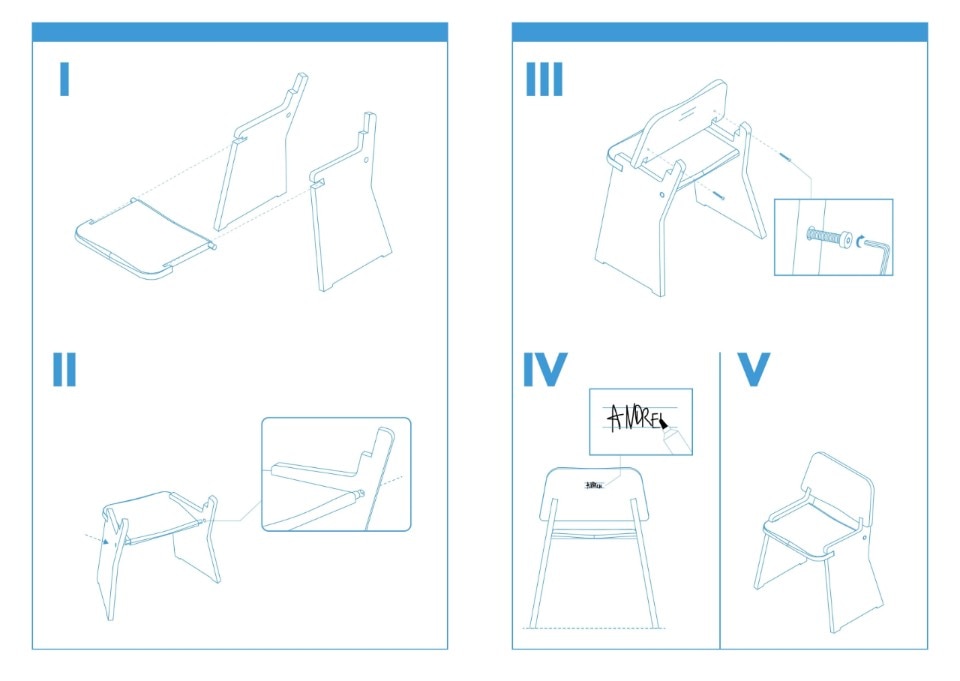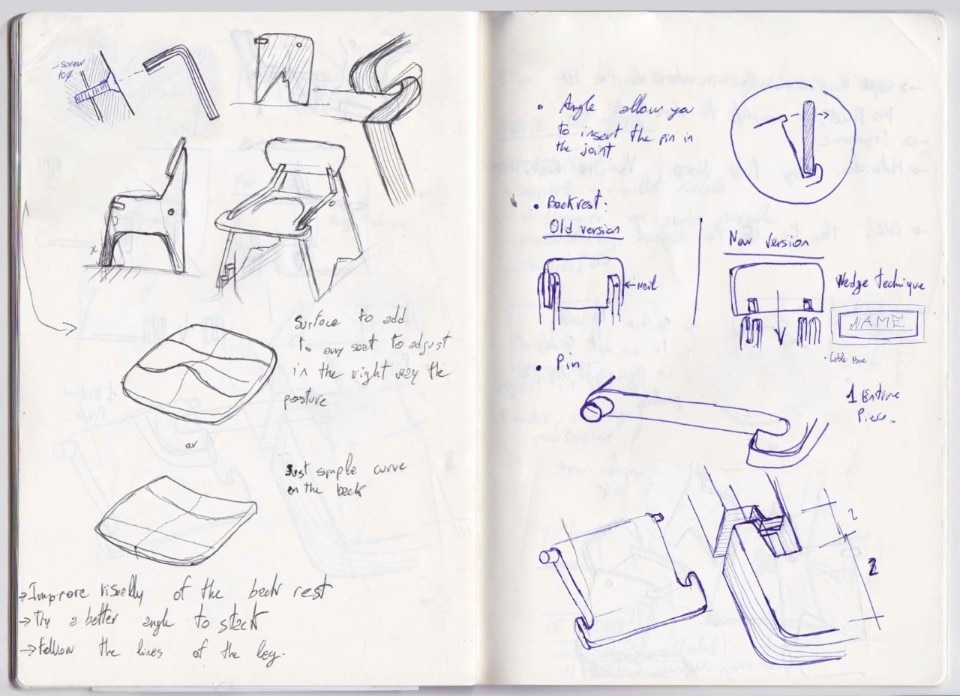This article was originally published on Domus 1067, April 2022.
Conceived for kids between eight and ten, Pono is a DIY chair that pupils can assemble at the start of the school year and take apart before summer vacation, “handing it down” to others. Inspired by Steiner’s approach, Alessandro Simone’s chair resulted from a course at ECAL in Lausanne, which he attended in 2020. The project was organised with the Danish office furniture brand Flokk, which, with the launch of a generic brief “to design chairs for schools of the future”, was keen to explore new markets.
“I tried to understand how kids’ habits change as they grow,” says the designer, born in 1996, with a master’s in product design from ECAL and a three-year degree in design and visual communication from the Polytechnic of Turin (he is now creative producer for On Running, a sports equipment brand in Zurich). “Kids learn to use iPads and computers before knowing how to make things with their hands. My approach balances the practical and human aspects of learning.”
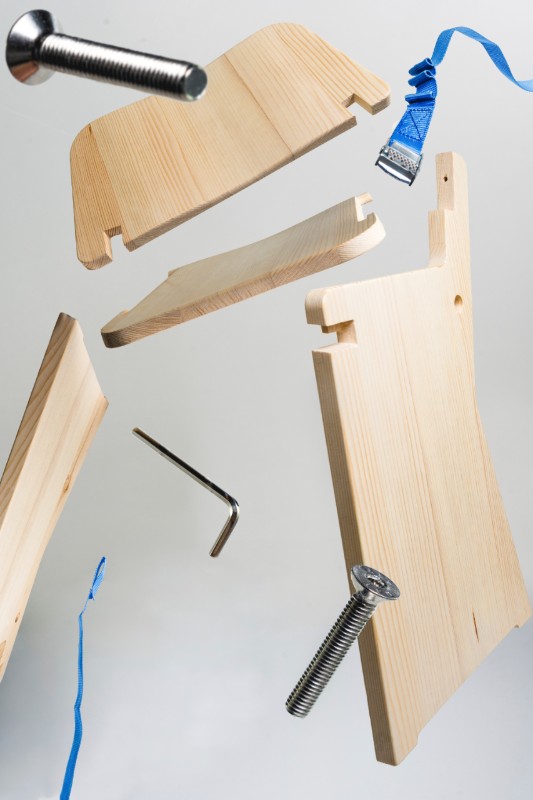
inspired by Enzo Mari’s self-design, Simone faced practical issues such as comfort and ergonomics (ensured by the curved seat and backrest) and almost zero waste (only wood was used). The design unfolds around four elements, joined like a kid-sized puzzle, with durable and reversible joints. Two screws on the back stabilise the system. The chair can be stacked (up to five) and there’s space on the backrest for pupils to write their name (“a way of making kids proud of their creation”), which can be erased when school ends. The soft edges make this object a furniture-game.
“Enzo Mari is an important reference,” he adds. “I relate to his radical approach. It’s important to be essential: you don’t need new objects, but a new way to use what you already have.”




